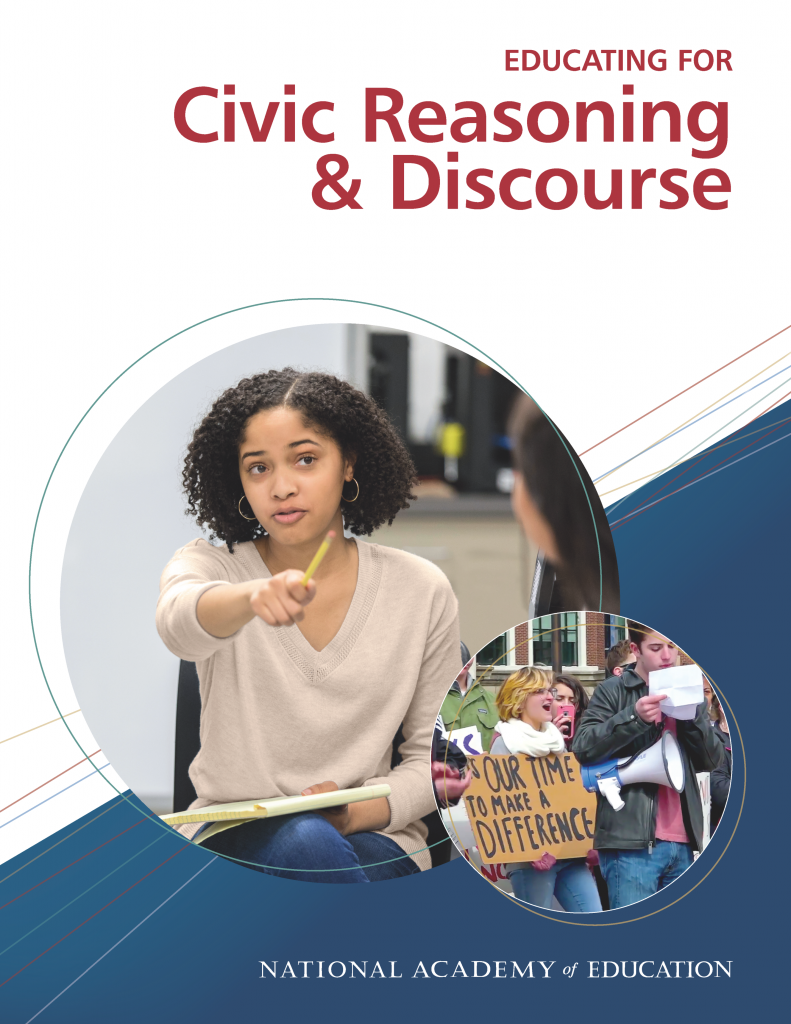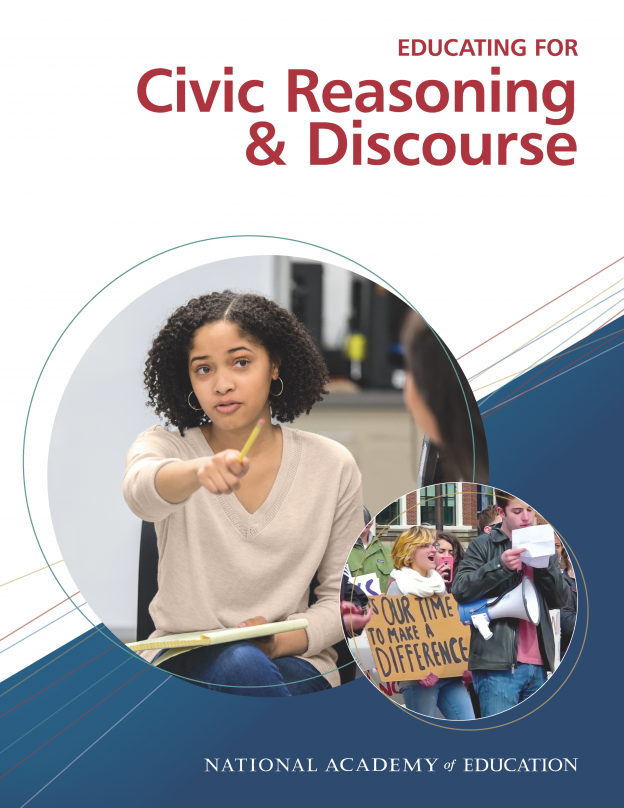- Facebook251
- Twitter1
- Total 252

The National Academy of Education (NAEd) is releasing its report on Educating for Civic Reasoning and Discourse. I was on the Steering Committee along with eight wonderful colleagues, and many more scholars contributed to writing the document. You can attend a public forum to hear more about it on May 3, 2021, 12:00 pm – 2:00 pm Eastern Time. Register here.
I’d describe this report as a response to problems of polarization, incivility, motivated reasoning, propaganda, and strained democratic institutions, along with racial injustice and other social crises. It is a response from the learning sciences, with papers by specialists on learning, schooling, and human development. In contrast to the Educating for American Democracy Roadmap, this report is more about how to teach (rather than what to teach); and it addresses education broadly, not just the disciplines of history and civics, which are the focus of the Roadmap. I worked on both projects simultaneously and benefited from the two perspectives.
Aficionados of Civic Studies will recognize this definition from the NAEd report:
DEFINING CIVIC REASONING AND DISCOURSE
Early in its work, the National Academy of Education (NAEd) Committee on Civic Reasoning and Discourse agreed on a shared definition of civic reasoning and discourse to guide the development of this report. The central question guiding the formulation of this definition concerns “What should we do?” and the “we” includes anyone in a group or community, regardless of their citizenship status. To engage in civic reasoning, one needs to think through a public issue using rigorous inquiry skills and methods to weigh different points of view and examine available evidence. Civic discourse concerns how to communicate with one another around the challenges of public issues in order to enhance both individual and group understanding. It also involves enabling effective decision making aimed at finding consensus, compromise, or in some cases, confronting social injustices through dissent. Finally, engaging in civic discourse should be guided by respect for fundamental human rights
